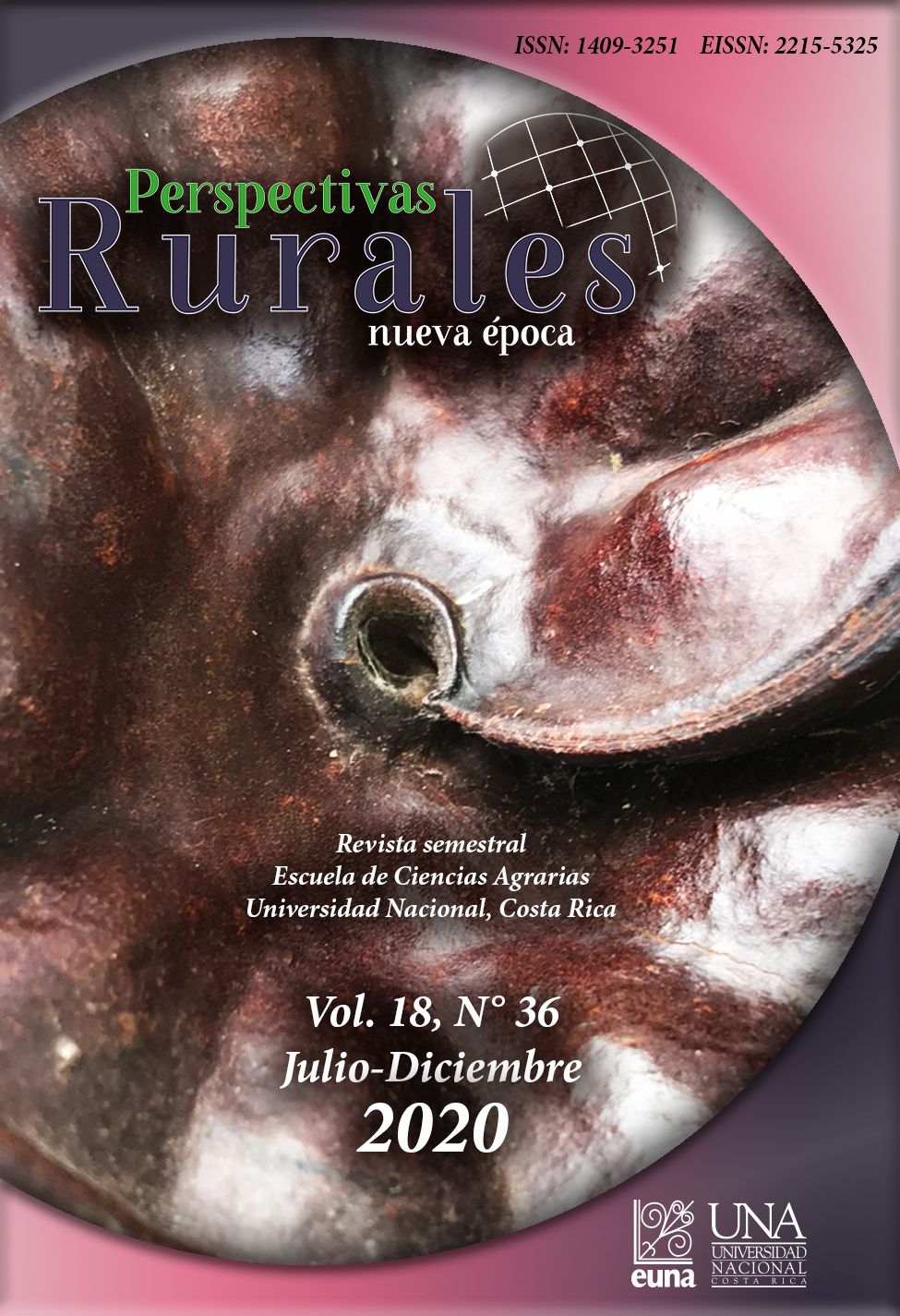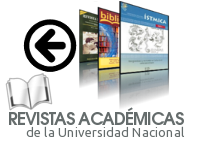The development of the social networks of the peasantry, in the process of association in an agricultural cooperative
DOI:
https://doi.org/10.15359/prne.17-36.4Keywords:
Peasantry, cooperativism, milk producers, social networkAbstract
This article presents a case study with the objective of analyzing the process of formation and/or strengthening of social networks (labor, communitarian, institutional, and friendly relationships) of milk producer peasants since their association with the Cooperativa Boyacense Integral de Lacteos (COBILAC). The research was carried out in Colombia, in Ventaquemada, which is a town located in the department of Boyacá. It included a group of 26 people made up by peasants, members of COBILAC, municipal representatives of the local and departmental administration of the agricultural sector, and its commercial ally, the Cooperativa de Lácteos de Antioquia (Colanta). They were subjects of the application of the tools and techniques of qualitative investigation, among which semi-structured interviews, focal groups, and participant observation were used for the obtainment of data and its processing and analysis. The research found a positive transformation of the social networks of the milk producers due to their link with COBILAC, since some networks have grown and strengthened, and new ones have emerged. Likewise, it has been shown that the interconnection among the different networks has positively impacted the productive work of the peasants and in their communitarian, familiar, and personal contexts.
References
Correia, J. C. (s. f.). Comunicación y autogestión en las cooperativas de reforma agraria ante el desafío del relevo generacional. Recuperado de http://www.comunicacaorural.com.br/comunicacaorural/artigos/reforma_agraria/artigo-jacinta-correia.pdf
Diaz-Bravo, Laura; Torruco-Garcia, Uri; Martinez-Hernandez, Mildred y Varela-Ruiz, Margarita. (2013). La entrevista, recurso flexible y dinámico. Investigación en Educación Médica. [online]. Vol. 2, N.° 7, pp.162-167. ISSN 2007-5057.
Enríquez, R. (2000). “Redes sociales y pobreza: mitos y realidades”. En Revista de Estudios de Género. México: Red de Revistas Científicas de América Latina, el Caribe, España y Portugal. pp. 36-72
García, M. M; Rodríguez, M. (2000). El grupo focal como técnica de investigación cualitativa en salud. Diseño y puesta en práctica. Atención Primaria. Vol. 25. Núm. 3. Publicada 28 de febrero.
Goodman, L. (1961). “Snowball Sampling” in the Annals of Mathematics y a Coleman 1958 “Snowbal sampling”.
Gracia Arnaiz Mabel. (2010). Alimentación y cultura en España: una aproximación desde la antropología social. Rev. Saúde Coletiva, Rio Janeiro. 20(2):357-386.
Hirai, S. (2012). Sigue los símbolos del terruño: etnografía multifocal y migración transnacional. Métodos cualitativos y migración internacional, IIS-UNAM Y COLEF. México, pp. 81-111. ISBN: 9878-607-02-3211-4
Lomnitz, A. L. (2003). Cómo sobreviven los marginados. México: Editores Siglo XXI.
Namakforoosh, M. (1986). Técnicas de investigación en: Metodología dela Investigación. Editorial. Interamericana, p. 525 México.
Observatorio Internacional de ciudadanía y medio ambiente sostenible (CIMAS). (2009). Metodologías participativas. Madrid.
Reynoso, C. (2011). Redes sociales y complejidad: Modelos interdisciplinarios en la gestión sostenible de la sociedad y la cultura. Buenos Aires: Universidad de Buenos Aires.
Sluzki, C. (1996). La red social: fronteras de la práctica sistémica. Barcelona: GEDISA.
Strauss, A.; Corbin, J. (2002). Bases de la investigación cualitativa. Técnicas y procedimientos para desarrollar la teoría fundamentada. Editorial Universidad de Antioquia. Colombia.
Usquiano, B., Liliana, C., & Carvajal Rojas, D. C. (2017). Análisis del impacto del modelo cooperativo como alternativa de desarrollo humano de los agricultores asociados a la cooperativa Cipaotanche del municipio de Otanche en el occidente de Boyacá.
Vasilachis, I. (2006). Estrategias de investigación cualitativa. España: Gedisa Editorial.
Downloads
Published
How to Cite
Issue
Section
License
![]()
Revista Perspectivas Rurales. Nueva Época se encuentra bajo una licencia Creative Commons Reconocimiento-NoComercial-CompartirIgual 4.0 Internacional License.
Creado a partir de la obra en http://www.revistas.una.ac.cr/index.php/perspectivasrurales
Los autores/as que publiquen en esta revista aceptan las siguientes condiciones:
- Los autores/as conservan los derechos de autor y ceden a la revista el derecho de la primera publicación, con el trabajo registrado con la Licencia Creative Commons Atribución-NoComercial-CompartirIgual 4.0 Internacional, que permite a terceros utilizar lo publicado siempre que mencionen la autoría del trabajo y a la primera publicación en esta revista.
- Los autores/as pueden realizar otros acuerdos contractuales independientes y adicionales para la distribución no exclusiva de la versión del artículo publicado en esta revista (p. ej., incluirlo en un repositorio institucional o publicarlo en un libro) siempre que indiquen claramente que el trabajo se publicó por primera vez en esta revista.
- Se permite y recomienda a los autores/as a publicar su trabajo en Internet (por ejemplo en páginas institucionales o personales) antes y durante el proceso de revisión y publicación, ya que puede conducir a intercambios productivos y a una mayor y más rápida difusión del trabajo publicado.






 :
: 
